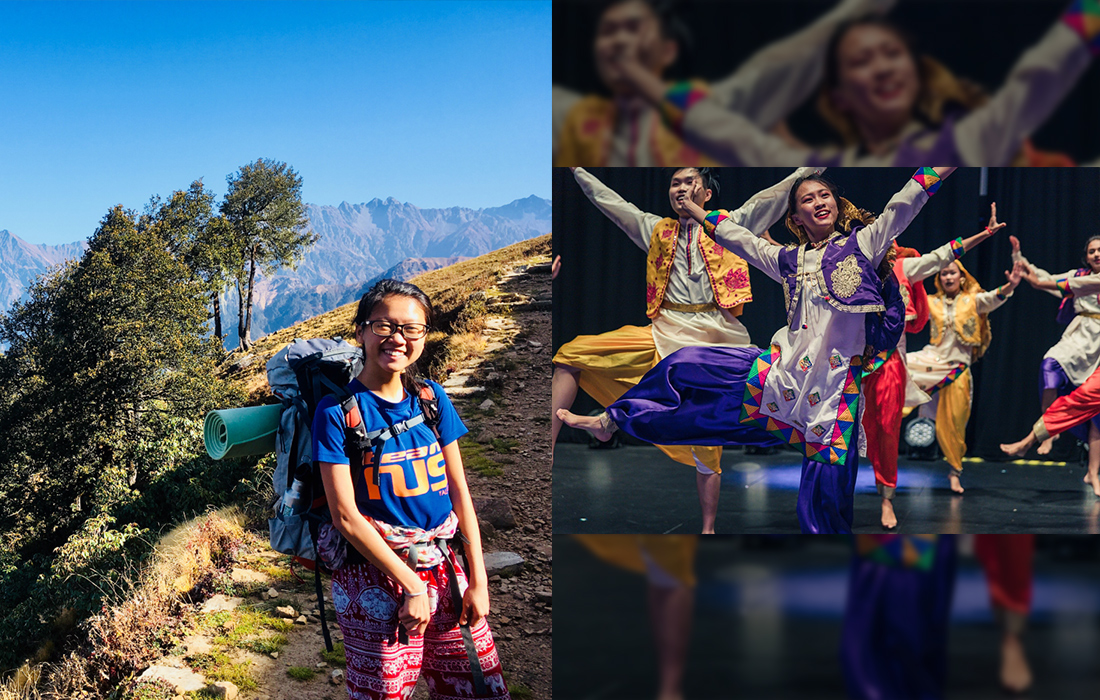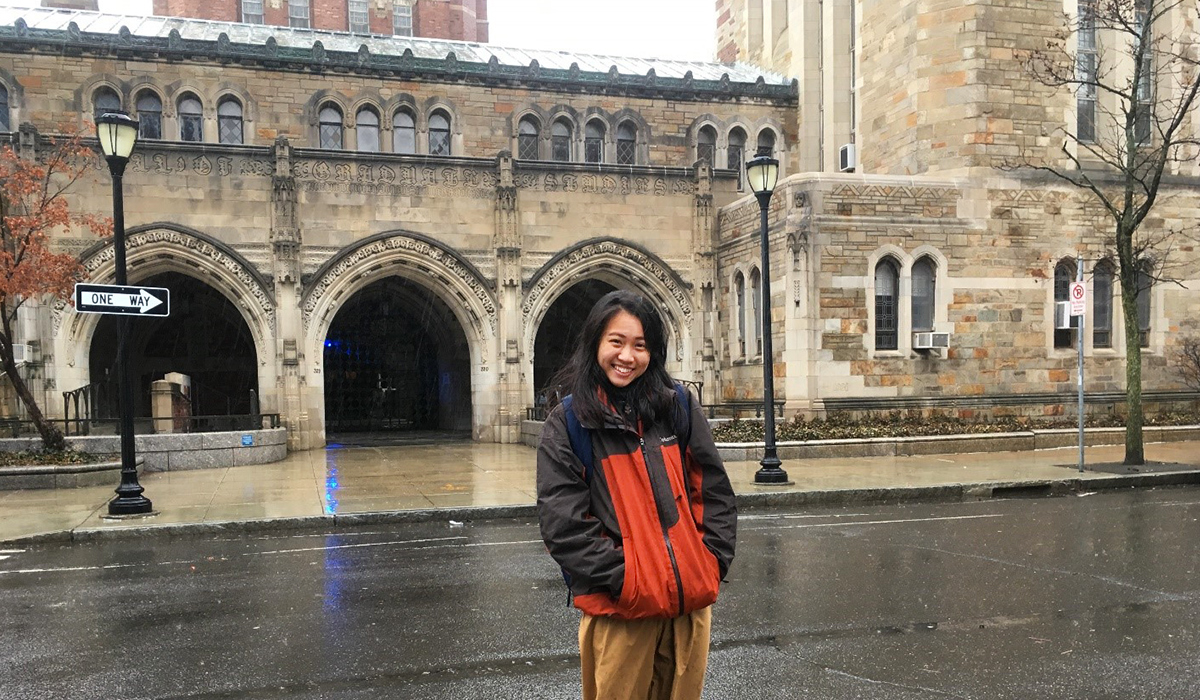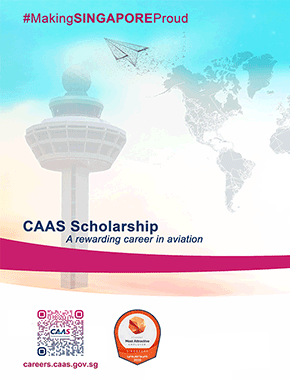Representing sustainability initiatives on a campus life exchange to Yale, New Haven in February 2018. There, she learnt strategies, leadership styles and structures for fostering community co-designing and co-ownership of environmentally sustainable campus practices.
Most Singaporeans are very proud of Changi Airport, which regularly tops the Best Airport in the World rankings. But beyond the many amenities and shopping deals on offer, what makes our airport stand out is its connectivity – it is an integral stopover for flights into and out of the Asia Pacific region, connecting Singapore to the world.
The Civil Aviation Authority of Singapore (CAAS) works tirelessly behind the scenes pursuing a progressive approach to air regulation. This requires much international cooperation, so CAAS builds strategic partnerships with international aviation authorities, develops collaborative projects with key international partners in critical areas such as aviation safety and cybersecurity, and advances international standards for safe and efficient air travel.
This huge range of duties is all in a day's work for CAAS Scholar Neo Xiaoyun, Deputy Manager (International Policy) at the International Relations Division. She squeezed some time out of her busy schedule to tell us about her scholarship journey, and where CAAS will take her from here.
You have a Bachelor of Arts (with Honours), from Yale-NUS College, but are currently in CAAS. How did you get interested in your current field?
As someone who is interested in international politics, history and aviation, CAAS is a natural fit. Aviation transcends borders and it connects Singapore to the world. My work at CAAS involves establishing Singapore as a thought leader in aviation and safeguarding Singapore's strategic interests as a global air hub.
Why did you apply for the CAAS Scholarship?
When I was organising the Tiltshift Summit in Raffles Institution Junior College, I was amazed by how youth leaders from 30 cities and countries as diverse as South Africa, Canada and Pakistan could easily fly into Singapore to discuss social issues and exchange stories of change-making within their local community.
I wanted to be a member of the CAAS team that makes a key contribution to Singapore's success. As a small and open city-state, our air transport links are crucial for securing economic prosperity and international standing.
At first glance, your work and academic background do not seem to have much in common. How did you apply what you have learned to your current work?
Through the Yale-NUS curriculum, I gained skills such as interdisciplinary thinking, critical analysis and writing, as well as effective communication which are useful to my role in the International Relations (IR) Division.
In an industry where issues are often multifaceted, complex and steeped in technical language, being able to think across disciplines and seek interconnections that may not be intuitive has prepared me for CAAS.
Speaking of your role at CAAS, we heard you were the Singapore Airshow 2020 Secretariat. Could you tell us what this entailed?
As the secretariat for CAAS' participation in the Singapore Airshow (alongside other ministries such as MFA, MINDEF, MOT), I had to bring various workstreams together. These workstreams included CAAS showcase, Industry Engagement Programme, flying displays, student and public engagement, hospitality plans for our VIP guests, and signings of Memorandums of Cooperation (MOCs) and Memorandums of Understanding (MOUs), just to name a few!

Left: Broadening her horizons with her choice of semester abroad programme. Based in Mussoorie, a hill town in the Indian Himalayas, she enjoyed a deeply immersive and interdisciplinary semester abroad programme.
Right: Xiaoyun participated actively in Yale-NUS rich and dynamic student organisation scene, including Bhangra, a Punjabi dance genre historically associated with the spring harvest festival.
You have extensive international coordination experience. What are some skills essential to successful collaboration?
Coordination work isn't easy. We are the interface between the technical or operational divisions and other agencies or the CAAS management. I've learnt to push myself to read up and speak to colleagues from other divisions on their work. From there I learnt much more about CAAS' work ranging from air navigational services to safety regulation operations.
How do you feel about representing and promoting Singapore's aviation sector on the global stage?
I am proud to be part of a team that reinforced Singapore's leadership on the international aviation stage. Our airport is, as Minister Ong Ye Kung said, the "lung" of Singapore. Aviation is our lifeblood – allowing social bonds to be globalised and ensuring the continued relevance of our city-state on the international level.
Recently, I supported the Singapore Permanent Mission to the International Civil Aviation Organisation (ICAO) and CAAS management in the ICAO's Council Aviation Recovery Task Force (CART). At the final stages of negotiations, it was enriching to observe Singapore bridge varying positions and steer parties toward a successful outcome.
What career opportunities are there at CAAS?
CAAS values career growth of its officers. For scholars, we are placed on two-year rotation cycles. Work is seldom in silos and one can be exposed to the work and perspectives of other divisions. Transitions from a fairly technical division to a more strategic planning division are common.
Similarly, officers rotate from more internal-facing divisions to more outwardly and internationally engaged divisions. They're also given the opportunity to be posted to other ministries, private organisations or even overseas. This gives officers a taste of the full breadth of CAAS' work to develop their potential for long-term careers and maximise their contribution.
Nature Lover
Xiaoyun loves the great outdoors. CAAS supported her unconventional international summer and semester-abroad programmes in the Bhutanese and Indian Himalayas, where she explored biodiversity conservation and anthropology.
Last question: Why should aspiring scholars join CAAS?
CAAS is a place where you can learn about the aviation industry and how air travel is kept safe and efficient, and how Singapore maintains positive foreign relations with key states via aviation collaborations. If you are an aviation enthusiast, have a heart for public service, a keen mind and an eagerness to learn, and also wish to enjoy the flexibility of pursuing any discipline of your choice (except medicine or dentistry) in renowned universities, CAAS is a good choice for you!


